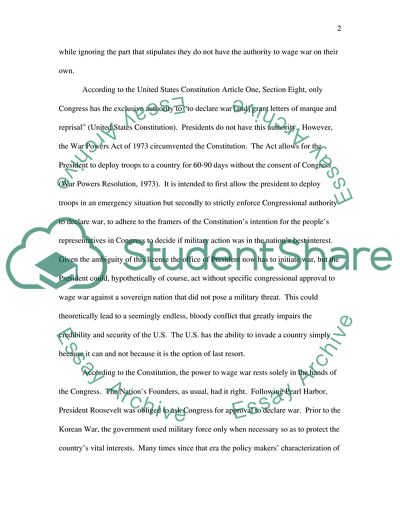Cite this document
(The War Powers Act of 1973 Article Example | Topics and Well Written Essays - 1643 words, n.d.)
The War Powers Act of 1973 Article Example | Topics and Well Written Essays - 1643 words. Retrieved from https://studentshare.org/history/1542602-the-war-powers-act-of-1973
The War Powers Act of 1973 Article Example | Topics and Well Written Essays - 1643 words. Retrieved from https://studentshare.org/history/1542602-the-war-powers-act-of-1973
(The War Powers Act of 1973 Article Example | Topics and Well Written Essays - 1643 Words)
The War Powers Act of 1973 Article Example | Topics and Well Written Essays - 1643 Words. https://studentshare.org/history/1542602-the-war-powers-act-of-1973.
The War Powers Act of 1973 Article Example | Topics and Well Written Essays - 1643 Words. https://studentshare.org/history/1542602-the-war-powers-act-of-1973.
“The War Powers Act of 1973 Article Example | Topics and Well Written Essays - 1643 Words”, n.d. https://studentshare.org/history/1542602-the-war-powers-act-of-1973.


